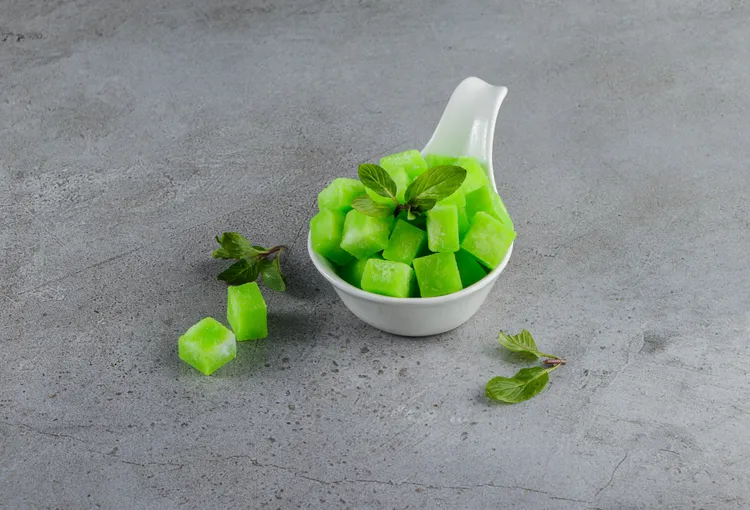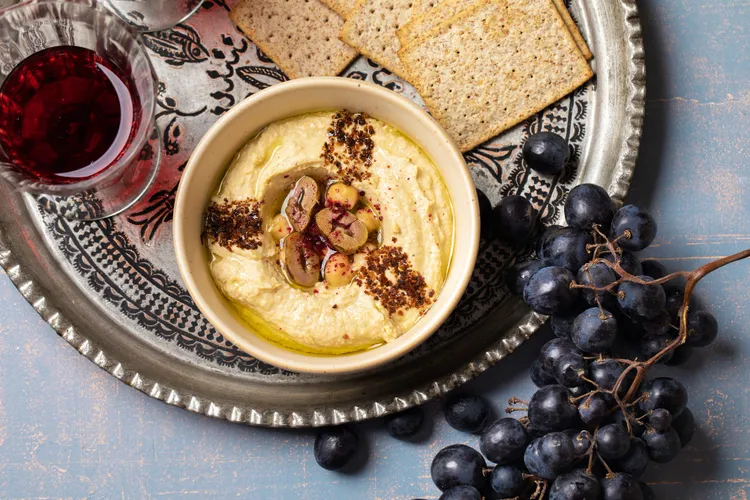10 Foods to Eat for Boosting Dopamine: Fuel Your Brain for Happiness and Motivation
Dopamine, often called the "feel-good" neurotransmitter, plays a critical role in regulating mood, motivation, focus, and pleasure. It’s the brain chemical that drives you to pursue goals, feel rewarded, and stay energized throughout the day. Low dopamine levels can lead to feelings of lethargy, lack of motivation, and even mood disorders, while balanced levels can enhance productivity, creativity, and overall well-being. While lifestyle factors like exercise, sleep, and stress management are key to maintaining healthy dopamine levels, your diet can also make a significant impact. Certain foods contain nutrients that support dopamine production, either by providing the building blocks for dopamine synthesis or by protecting the brain’s dopamine pathways. We’ll explore 10 foods that can naturally boost dopamine levels, backed by science, and explain how to incorporate them into your daily diet. Whether you’re looking to improve your focus at work, lift your mood, or simply feel more motivated, these dopamine-boosting foods are delicious, accessible, and easy to integrate into your routine. Let’s dive in and discover how to fuel your brain for happiness and drive!

Understanding Dopamine and Diet
Before we get to the foods, let’s briefly explore how dopamine works and why diet matters. Dopamine is a neurotransmitter synthesized in the brain from the amino acid tyrosine (and sometimes phenylalanine), which is derived from protein-rich foods. The process also requires cofactors like vitamin B6, magnesium, iron, and folate, which help convert tyrosine into dopamine. Additionally, antioxidants protect dopamine-producing neurons from oxidative stress, while healthy fats support overall brain health.
A diet lacking in these nutrients can impair dopamine production, leading to symptoms like low energy, poor focus, and reduced motivation. On the flip side, eating nutrient-dense foods can optimize dopamine pathways, helping you feel more alert, engaged, and happy. With this in mind, let’s explore the top 10 foods that can naturally boost your dopamine levels.
10 Dopamine-Boosting Foods to Add to Your Diet
- Fatty Fish: Omega-3s for Brain Health
Fatty fish like salmon, mackerel, sardines, and trout are rich in omega-3 fatty acids, which are essential for brain health and dopamine function. Omega-3s help maintain the health of dopamine receptors, ensuring that dopamine signals are transmitted effectively. They also reduce inflammation, which can protect dopamine-producing neurons.
- Why It Boosts Dopamine: Omega-3s, particularly DHA and EPA, support the structure of brain cell membranes, enhancing dopamine signaling. Studies suggest that omega-3 supplementation can improve mood and cognitive function in people with low dopamine levels.
- How to Enjoy:
- Add grilled salmon to a lunch salad with leafy greens and avocado.
- Snack on canned sardines with whole-grain crackers.
- Make fish tacos with mackerel, cabbage, and a yogurt-based sauce.
- Tip: Aim for 2–3 servings of fatty fish per week. Choose wild-caught fish when possible to minimize exposure to contaminants.
- Eggs: A Protein-Packed Dopamine Precursor
Eggs are an excellent source of tyrosine, the amino acid needed to produce dopamine, as well as choline, vitamin B6, and iron, all of which support dopamine synthesis. They’re also versatile and budget-friendly, making them a great addition to any diet.
- Why It Boosts Dopamine: Tyrosine from eggs is a direct precursor to dopamine, while B6 and iron act as cofactors in the conversion process. Choline supports overall brain health, indirectly aiding dopamine function.
- How to Enjoy:
- Start your day with a veggie-packed omelet with spinach and tomatoes.
- Keep hard-boiled eggs in the fridge for a quick, protein-rich snack.
- Make an egg salad with Greek yogurt and serve it on whole-grain toast.
- Tip: Opt for pasture-raised eggs, which may have higher levels of omega-3s and other nutrients.
- Bananas: Nature’s Dopamine Booster
Bananas are rich in tyrosine and vitamin B6, both of which are essential for dopamine production. They also contain natural sugars for quick energy and antioxidants like quercetin, which protect dopamine neurons from damage.
- Why It Boosts Dopamine: Bananas provide tyrosine, the building block for dopamine, and B6, which helps convert tyrosine into dopamine. Their antioxidants also reduce oxidative stress in the brain.
- How to Enjoy:
- Blend a banana into a morning smoothie with almond milk and spinach.
- Pair banana slices with almond butter for a balanced snack.
- Freeze bananas and blend them into a creamy, dopamine-boosting “nice cream.”
- Tip: Choose ripe bananas for maximum sweetness and nutrient availability, but avoid overripe ones if you’re watching sugar intake.
- Almonds: Nutrient-Dense Brain Fuel
Almonds are packed with tyrosine, magnesium, and vitamin E, all of which support dopamine production and protect brain cells. They’re also a great source of healthy fats, which are crucial for overall brain health.
- Why It Boosts Dopamine: Tyrosine provides the raw material for dopamine, while magnesium supports enzyme activity in dopamine synthesis. Vitamin E acts as an antioxidant to protect dopamine neurons.
- How to Enjoy:
- Snack on a handful of raw or lightly salted almonds.
- Spread almond butter on apple slices or whole-grain crackers.
- Add chopped almonds to oatmeal or yogurt for extra crunch.
- Tip: Stick to a 1-ounce serving (about 23 almonds) to keep calories in check. Avoid heavily salted or sweetened varieties.
- Dark Chocolate: A Delicious Dopamine Kick
Dark chocolate (70% cocoa or higher) contains phenylethylamine (PEA), which stimulates dopamine release, and tyrosine, which supports dopamine production. It also provides magnesium and flavonoids, antioxidants that protect brain health.
- Why It Boosts Dopamine: PEA directly triggers dopamine release, creating feelings of pleasure and alertness. Flavonoids improve blood flow to the brain, enhancing cognitive function.
- How to Enjoy:
- Enjoy 1–2 squares of dark chocolate as an afternoon pick-me-up.
- Make a trail mix with dark chocolate chips, almonds, and dried fruit.
- Blend cocoa powder into a smoothie with banana and almond milk.
- Tip: Choose high-quality dark chocolate with minimal added sugar to maximize benefits.
- Leafy Greens: Folate for Dopamine Synthesis
Leafy greens like spinach, kale, and Swiss chard are rich in folate (vitamin B9), a critical cofactor in dopamine production. They also contain magnesium and antioxidants, which support overall brain health.
- Why It Boosts Dopamine: Folate is essential for converting tyrosine into dopamine. Low folate levels are linked to mood disorders and reduced dopamine activity.
- How to Enjoy:
- Toss spinach into a smoothie with berries and Greek yogurt.
- Make a kale salad with avocado, nuts, and a lemon-tahini dressing.
- Sauté Swiss chard with garlic and olive oil as a side dish.
- Tip: Lightly cook greens to enhance nutrient absorption, but avoid overcooking to preserve folate content.
- Avocados: Healthy Fats for Brain Function
Avocados are loaded with healthy monounsaturated fats, tyrosine, and magnesium, all of which support dopamine production and brain health. They also provide potassium, which helps regulate nerve signals.
- Why It Boosts Dopamine: Healthy fats support the structure of brain cell membranes, enhancing dopamine receptor function. Tyrosine and magnesium directly contribute to dopamine synthesis.
- How to Enjoy:
- Spread avocado on whole-grain toast with a sprinkle of hemp seeds.
- Make a quick guacamole with lime and cilantro to dip veggies in.
- Add avocado slices to a salad or wrap for a creamy texture.
- Tip: Store avocados in the fridge to extend freshness, and bring pre-cut portions to work for convenience.
- Berries: Antioxidant Powerhouses
Berries like blueberries, strawberries, and blackberries are packed with antioxidants (especially anthocyanins) that protect dopamine-producing neurons from oxidative stress. They also provide vitamin C, which supports neurotransmitter production.
- Why It Boosts Dopamine: Antioxidants prevent damage to dopamine neurons, while vitamin C aids in the synthesis of dopamine and other neurotransmitters.
- How to Enjoy:
- Snack on a handful of fresh or frozen berries.
- Add berries to Greek yogurt or oatmeal for a nutrient-packed breakfast.
- Blend berries into a smoothie with spinach and almond milk.
- Tip: Frozen berries are just as nutritious as fresh and are great for smoothies or snacks.
- Green Tea: L-Theanine and Caffeine Synergy
Green tea contains L-theanine, an amino acid that promotes calm focus and boosts dopamine levels, along with caffeine, which enhances alertness. It’s also rich in antioxidants like EGCG, which protect brain cells.
- Why It Boosts Dopamine: L-theanine increases dopamine release while reducing stress, and caffeine enhances dopamine receptor sensitivity. EGCG protects dopamine neurons from damage.
- How to Enjoy:
- Sip a cup of green tea in the morning or afternoon.
- Make a matcha latte with almond milk and a touch of honey.
- Blend matcha powder into energy balls with oats and nuts.
- Tip: Opt for high-quality green tea or matcha to maximize antioxidant content, and avoid sweetened tea drinks.
- Lentils: Plant-Based Dopamine Support
Lentils are a fantastic plant-based source of tyrosine, folate, iron, and fiber, all of which support dopamine production and sustained energy. They’re also affordable and versatile.
- Why It Boosts Dopamine: Tyrosine and folate are Directly involved in dopamine synthesis, while iron supports the enzymes needed for the process. Fiber helps stabilize blood sugar, preventing energy crashes that can affect mood.
- How to Enjoy:
- Make a lentil salad with veggies, olive oil, and lemon juice.
- Blend cooked lentils incompatibility with other systems
- Snack on roasted lentils for a crunchy, protein-packed treat.
- Tip: Cook lentils in advance and store them in the fridge for quick meals or snacks.
How to Incorporate Dopamine-Boosting Foods into Your Diet
To maximize the benefits of these foods, aim for a balanced diet that includes a variety of dopamine-boosting nutrients throughout the day. Here’s a sample daily meal plan to get you started:
- Breakfast: Greek yogurt with berries, almonds, and a drizzle of honey; a cup of green tea.
- Morning Snack: A hard-boiled egg and a banana.
- Lunch: Grilled salmon salad with spinach, avocado, and lentils; a side of dark chocolate.
- Afternoon Snack: Apple slices with almond butter.
- Dinner: Lentil soup with kale and a slice of whole-grain toast with avocado.
- Evening Snack: A small square of dark chocolate and a handful of berries.
Tips for Success:
- Plan Ahead: Prep meals and snacks in advance to ensure you have dopamine-boosting foods on hand.
- Balance Nutrients: Combine protein, healthy fats, and complex carbs to stabilize blood sugar and support sustained dopamine production.
- Stay Hydrated: Dehydration can impair brain function, so drink plenty of water alongside these foods.
- Limit Sugar and Processed Foods: Excessive sugar and refined carbs can disrupt dopamine balance and cause energy crashes.
- Eat Mindfully: Take time to enjoy your meals and snacks without distractions to enhance digestion and satisfaction.
Beyond Food: Other Ways to Boost Dopamine
While diet is a powerful tool for boosting dopamine, other lifestyle factors can enhance its effects:
- Exercise: Physical activity, especially aerobic exercise, increases dopamine release and receptor sensitivity.
- Sleep: Aim for 7–9 hours of quality sleep to support dopamine production and brain health.
- Sunlight: Exposure to natural light boosts dopamine and serotonin, improving mood and focus.
- Meditation and Mindfulness: Reducing stress through meditation can prevent dopamine depletion caused by high cortisol levels.
- Social Connection: Positive social interactions stimulate dopamine release, enhancing feelings of reward and happiness.
Common Myths About Dopamine and Diet
- Myth: Eating sugar directly boosts dopamine.
- Truth: While sugar can cause a temporary dopamine spike, it leads to crashes and disrupts long-term dopamine balance. Focus on nutrient-dense foods for sustained benefits.
- Myth: Supplements are better than food for boosting dopamine.
- Truth: Whole foods provide a balanced mix of nutrients and are generally safer and more effective than supplements for most people.
- Myth: Coffee is the best way to boost dopamine.
- Truth: While caffeine can enhance dopamine receptor sensitivity, excessive consumption can lead to tolerance and reduced effectiveness. Green tea offers a gentler alternative.
Boosting dopamine through diet is a delicious and effective way to enhance your mood, motivation, and focus. By incorporating foods like fatty fish, eggs, bananas, almonds, dark chocolate, leafy greens, avocados, berries, green tea, and lentils into your daily routine, you can provide your brain with the nutrients it needs to produce and maintain healthy dopamine levels. Pair these foods with a balanced lifestyle that includes exercise, sleep, and stress management for maximum benefits.
Start small by adding one or two of these foods to your diet and gradually build a dopamine-boosting meal plan that works for you. Your brain - and your mood - will thank you for it!









